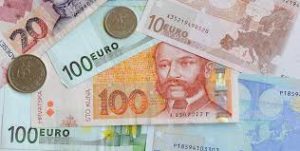Fifty-two percent of Croatian citizens support adoption of the euro, 40 percent are against and eight percent are undecided, Croatian National Bank (HNB) governor Boris Vujčić said , citing the results of the latest survey conducted by the central bank every six months.

Vujčić was speaking at a panel entitled “When will Croatia adopt the euro?” Citing the advantages of a switch from the national currency the kuna to the European Union’s single currency, he said: “The adoption of the euro would reduce investment insecurity, higher interest rates and high costs.”
Vujčić also noted that most Croatian citizens hold their savings denominated in euros, and since most of the loans are also tied to the single currency, its adoption by Croatia would reduce the exchange rate risk.
Those opposed to adopting the euro cited a fear of sharp price increases as their main concern, which Vujčić described as unfounded. “That’s a myth and it did not happen in any of the countries that have adopted the euro,” he said, adding that there would always be inflation but that it should not be blamed on the adoption of the new currency.

Vujčić would not say when Croatia could be expected to be admitted to the Exchange Rate Mechanism (ERM II), as a step preceding accession to the euro area. He, however, said that talks were under way with the European Commission and the European Central Bank about the content of a letter which he and Finance Minister Zdravko Marić would have to send in when applying for ERM II membership.
After joining ERM II, Croatia will have two years to meet the euro area membership criteria and then wait for a positive response from the European Commission. “Even if all that goes smoothly, it won’t happen before 2023,” Vujčić said.